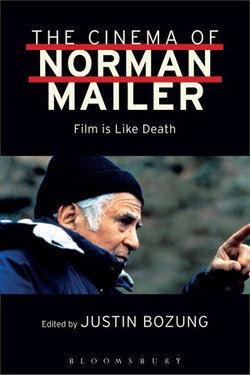The Cinema of Norman Mailer: Film is Like Death not only examines the enfant terrible writer's thoughts on cinema, but also features interviews with Norman Mailer himself. The Cinema of Norman Mailer also explores Mailer's cinema through previously published and newly commissioned essays written by an array of film and literary scholars, enthusiasts, and those with a personal, philosophical connection to Mailer. This volume discusses the National Book Award and Pulitzer Prize-winning author and filmmaker's six films created during the years of 1947 and 1987, and contends to show how Mailer's films can be best read as cinematic delineations that visually represent many of the writer's metaphysical and ontological concerns and ideas that appear in his texts from the 1950s until his passing in 2007. By re-examining Mailer's cinema through these new perspectives, one may be awarded not just a deeper understanding of Mailer's desire to make films, but also find a new, alternative vision of Mailer himself. Norman Mailer was not just a writer, but more: he was one of the most influential Postmodern artists of the twentieth century with deep roots in the cinema. He allowed the cinema to not only influence his aesthetic approach, but sanctioned it as his easiest-crafted analogy for exploring sociological imagination in his writing. Mailer once suggested, "Film is legitimately more interesting than books..." and with that in mind, readers of Norman Mailer might begin to rethink his oeuvre through the viewfinder of the film medium, as he was equally as passionate about working within cinema as he was about literature itself.



Share This eBook: